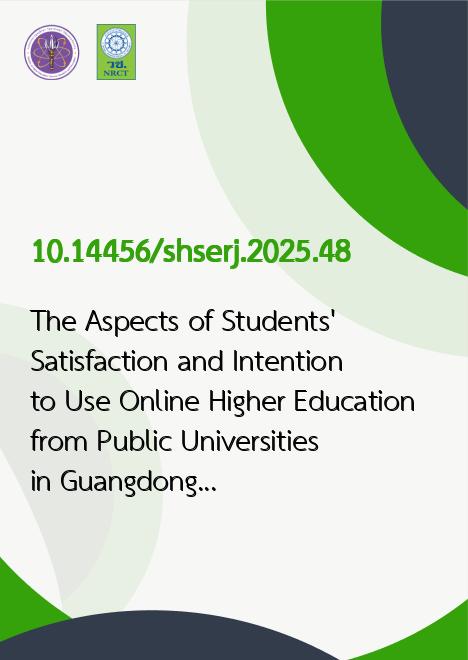
|
The Aspects of Students' Satisfaction and Intention to Use Online Higher Education from Public Universities in Guangdong, China |
|---|---|
| รหัสดีโอไอ | |
| Creator | Chong Han |
| Title | The Aspects of Students' Satisfaction and Intention to Use Online Higher Education from Public Universities in Guangdong, China |
| Publisher | Assumption University Press |
| Publication Year | 2568 |
| Journal Title | The Scholar: Human Sciences |
| Journal Vol. | 17 |
| Journal No. | 2 |
| Page no. | 188-197 |
| Keyword | Learning Material, Infrastructure Facilities, Academic Staff, Student Satisfaction, Intention to Use |
| URL Website | https://assumptionjournal.au.edu/index.php/Scholar/article/view/8013 |
| Website title | https://assumptionjournal.au.edu/index.php/Scholar |
| ISSN | 2586-9388 |
| Abstract | Purpose: This study aims to investigate the students' satisfaction and willingness to attend online higher education at three universities in Guangdong Province. The conceptual framework proposes learning materials, infrastructure, academic staff, degree programs, perceived usefulness, student satisfaction, and willingness to use. Research design, data, and methodology: The researchers used a quantitative method (n=450) to distribute questionnaires to postgraduates at three universities in Guangdong Province. Non-probability sampling includes judgment sampling when selecting postgraduates from three universities, quota sampling when determining the scope, and convenience sampling when collecting online distribution surveys. Structural equation modeling (SEM) and confirmatory factor analysis (CFA) are used for data analysis, including model fitting and the reliability and validity of structures. Results: Learning material has, academic staff, degree program, and perceived usefulness significantly impact student satisfaction. Perceived usefulness and student satisfaction have a significant impact on student intention to use. Nevertheless, infrastructure facilities have no significant impact on student satisfaction. Conclusions: This study provides the senior management of colleges and universities with the tools to identify the variables that affect the willingness of college students to use online education so that it can be applied to online teaching. |
